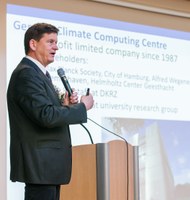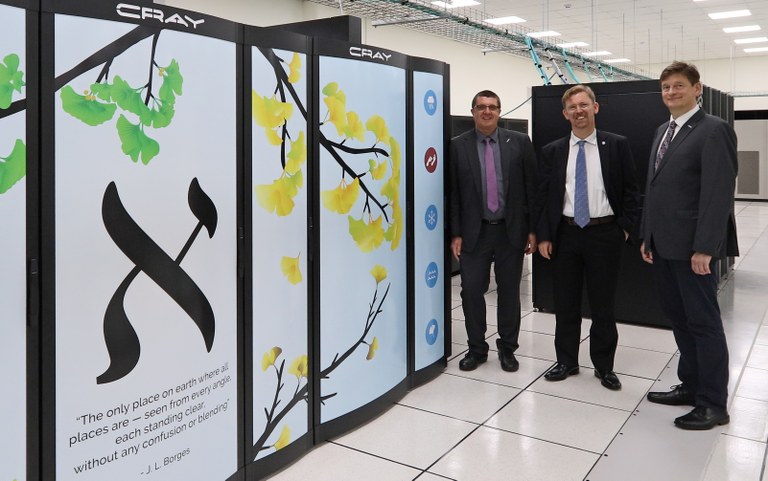26.04.2019
 On April 25, 2019, a new supercomputer took up its operation in the headquarter of the Institute for Basic Science in Daejon, Korea. During the inauguration ceremony, Prof. Ludwig held a keynote about "Climate Supercomputing in Germany".
On April 25, 2019, a new supercomputer took up its operation in the headquarter of the Institute for Basic Science in Daejon, Korea. During the inauguration ceremony, Prof. Ludwig held a keynote about "Climate Supercomputing in Germany".
The new computer system of the company Cray, which was named after the first letter of the Hebrew alphabet Aleph, reaches a peak performance of 1.43 PetaFLOPS. The computing power is provided by 468 computer nodes with a total of nearly 20,000 processor cores based on Intel's Skylake technology. Aleph's hard disk system has a capacity of 8.5 Petabytes. An additional 10 Petabytes of storage space is available in a tape library, which can be expanded to up to 43 Petabytes. On the supercomputer, applications from the fields of climate physics, high energy physics, molecular cell biology and data science are modeled.
On the following day of the inauguration ceremony, Michael Böttinger presented the work of the visualization group at the DKRZ at the IBS Institute in Busan. It was followed by a hands-on workshop on ParaView software, during which Korean colleagues were given an introduction to interactive 3D data visualization in climate research.

Prof. Dr. Axel Timmermann, director of the IBS Institute for Climate Physics, and Thomas Ludwig and Michael Böttinger, both from the DKRZ, in front of the new supercomputer ALEPH at its inauguration on April, 25, 2019 at the Institute for Basic Science (IBS Institute of Clima Physics) in Korea.
Web news by IBS about the inauguration: https://www.iccp.ibs.re.kr/newsroom/news/ibsiccp-supercomputer-aleph-boost-climate-research-south-korea
